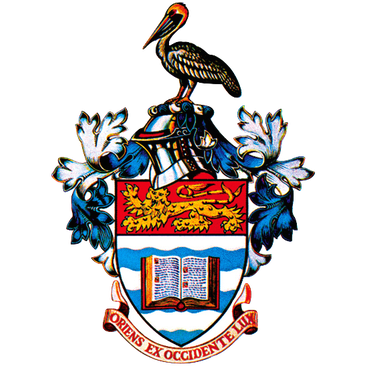📖Program Curriculum
The coursework component is designed as an introduction to various forensic fields and aims to prepare students to apply foundational knowledge and skills in the medico-legal investigations surrounding unnatural deaths in South Africa. The research component includes coursework on research methodology, journal club presentations, and a-long research project.
The coursework component consists of five modules:
Forensic Medicine
Forensic Anthropology
Investigative and Forensic Psychology
Forensic Entomology
Forensic Toxicology
Class attendance is compulsory.
Each module is assessed via written assignments (short answer questions, and essays), laboratory tutorials, practical tests (lab-based assessments), and a written examination.
Students will also actively participate in the Human DecedentIdentification Unit by collecting and recording primary and secondary identifiers from active forensic cases to assist in the identification of individuals who have died as a result of unnatural causes.
Description of Modules:
Forensic Medicine
This module addresses those aspects of forensic medicine which are most frequently the subject of expert testimony in the courts. The intention is to teach the basics of forensic medicine to students with no previous knowledge of the forensic sciences. The primary aim of the course is to introduce students to the ways in which medical science can assist in the resolution of legal issues in the criminal and civil courts. By the end of the module students should know the legal framework governing Forensic Pathology Services (and health care workers) in SA, have an understanding of the forensic aspects of different types of injuries and injury patterns, be able to critically evaluate a medico-legal report on (inter alia) a person dying of injury or a surviving victim of an alleged assault or sexual offence, understand the medical basis of legal issues related (but not limited to) fatal injuries, sexual offences, alcohol and drug abuse, anoxia, child abuse, and procedure-related deaths
Forensic Anthropology
This module provides an introduction to the forensic application of analyzing and identifying skeletonized remains through human skeletal biology, including age and developmental assessment, morphological and metric assessment of sex, morphological and metric assessment of ancestry, stature and body size, unique skeletal markers, trauma, pathology, and body modifications.
Investigative and Forensic Psychology
This module aims to teach the principles of investigative and forensic psychology from a theoretical perspective and to produce graduates who have a basic knowledge of investigative and forensic psychology, within the South African context. Students will gain a basic knowledge of the following: 1) psychology, both investigative and forensic, and to understand the role of the investigative and forensic psychologist within the South African justice system, 2) Criminal Investigative Analysis (Profiling) from an Investigative Psychological perspective, 3) psychologically motivated crimes within a South African context, 4) family murders, 5) serial rape, serial murder, sexual murder, and muti murder, 6) the role fantasy, signature and modus operandi play during a psychologically motivated crime, 7) paraphilias, with a specific focus on autoerotic fatality and Paedophilia, 8) the skills for major case management and 9) the role of an expert witness and how to present expert evidence in court.
Forensic Entomology
This module aims to teach the principles of forensic entomology with respect to medico-legal investigations. Students will gain knowledge in the following: 1) the internal and external anatomy of insects, 2) identify insect orders and families using scientific keys from physical features on Insects, 3) understand how the environment affects the insects which live in the area, 4) understand how insects are adapted to living in different areas and how this relates to forensic entomology, 5) understand both the medical and forensic application of entomology, 6) correctly collect and process insect samples to be used in estimating the postmortem interval(i.e. the time since death), 7) understand the physiological effects of toxins on the body and development of insects, and 8) understand how insects play a pivotal role in the crime scene and how they may change or alter evidence.
Forensic Toxicology
This module aims to familiarise the student with current investigative forensic toxicology principles, processes and techniques; provide basic fundamental pharmacokinetic and pharmacodynamic principles in understanding how a xenobiotic is administered, absorbed and eliminated from the body, identify and elaborate on analytical instrumentations employed in a forensic toxicological analysis and their applications, and provide exposure to basic analytical methodologies in the performance of drug and pesticide testing in biological specimens.
Human Decedent Identification Unit
Honours students are expected to participate in the Human Decedent Identification Unit at the Johannesburg Forensic Pathology Services Medico-legal Mortuary. This unit was created as a humanitarian effort to help with the identification of unknown deceased individuals at the Johannesburg Forensic Pathology Services. The unit was created by the University of the Witwatersrand Department of Forensic Medicine and Pathology in collaboration with the International Committee of the Red Cross, and associates with the Victim Identification Centre of the South African Police Service. The role of the unit is to gather information on unidentified deceased individuals who have died as a result of unnatural causes to aid in their possible identification regardless of their nationality. Primary and secondary forms of identification are collected, including, DNA samples(hair, nail, blood), fingerprints and dental records, and record descriptions and photographs of scars, tattoos, moles, piercings, clothes, personal effects, etc. Participation in the unit is compulsory for the BHSC Honours in Forensic Science students. The unit runs twice a week (primarily Wednesday and Thursday afternoons) and sessions are confirmed at the beginning of each term in line with the lecture courses occurring at the time. The students work in groups and rotate through each section of the process of ID to give them full knowledge and experience in all aspects of the identification process.
Research Methodology
The Research Methodology module is intended to assist students to develop skills to perform research in Forensic Sciences and enable them to become competent independent research. This module includes lectures in research methodology and assessments in the form of a mini-research report, journal club presentations, and a research project on a topic related to one of the coursework modules. The research project will entail a research proposal, proposal presentation, research report, research presentation, and research poster (all under the supervision of forensic science and pathology staff).
Show less








